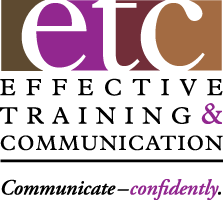This edition of ‘WordPower’ deals with the impact of poor workplace writing skills. Here’s a summary of a conversation I had with a business reporter on this topic.
1) How do poor writing skills hurt businesses?
Poor writing skills can make you and your organization look lazy, sloppy or incompetent. This is especially true with people who place a high priority on precision, accuracy and quality.
They can create the impression that you’re an amateur and, remember … perception is reality.
They can cause problems with clarity, understanding or intent when communicating with employees, customers or prospects which can cost time and money to fix.
2) How can you tell if you have poor writing skills?
Use the various on-line writing tests like the Fog Index, the Flesch Test or the writing tools built into your word processor.
Compare what you or your organization writes to competent examples such as the WSJ, leading company annual reports or their websites.
Hire a workplace communication expert to critique what you write and create standards, templates or examples for employees to follow.
3) How can you improve your and your employees’ writing skills?
Keep track of how often you or someone needs to send out a second email to clarify or correct confusing language in the first one.
Make effective, efficient and engaging written communication important for your organization. Add the behavior to written performance objectives. Evaluate and reward accordingly.
Identify employees with competent skills to mentor those in need.
Use various free on-line classes or tutorials.
Encourage everyone to use the spell-checker at the very least
While sending staff to a local one-day class might add value, they tend to be generic and superficial. Better to hire a local workplace writing consultant – not a college English professor – to deliver customized workshops and/or coaching engagements.
The negative impact of poor workplace writing, while subjective and hard to quantify, can influence the interest of potential customers or employees in your organization. So, it does really matter!
